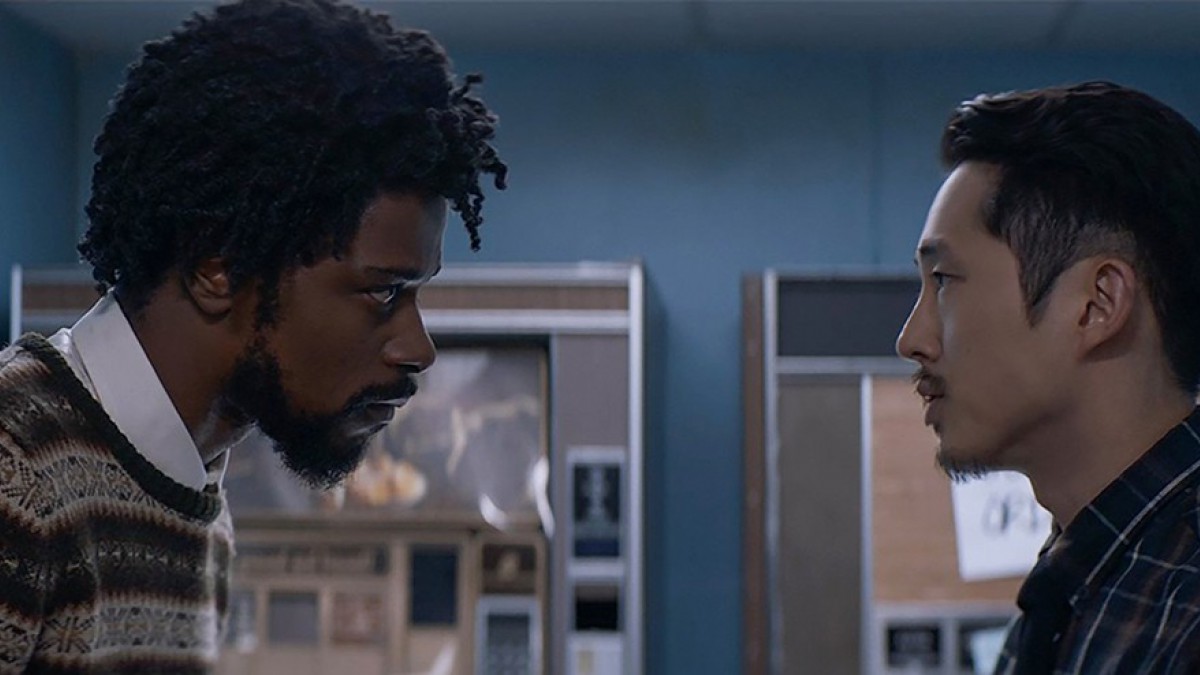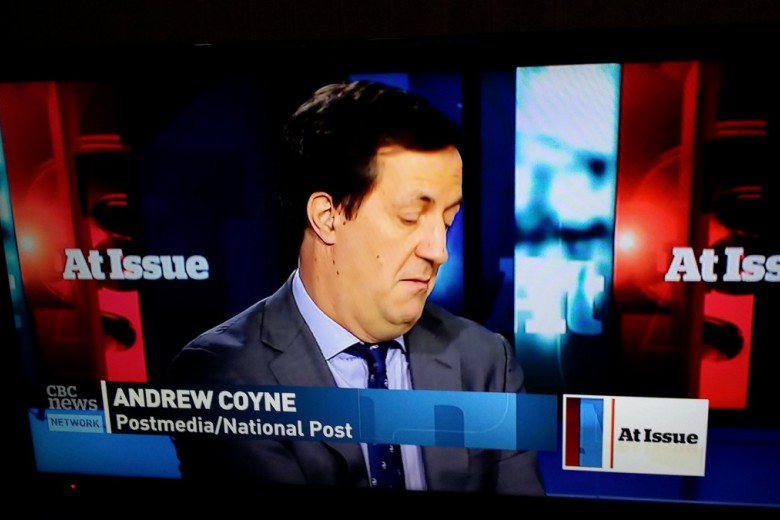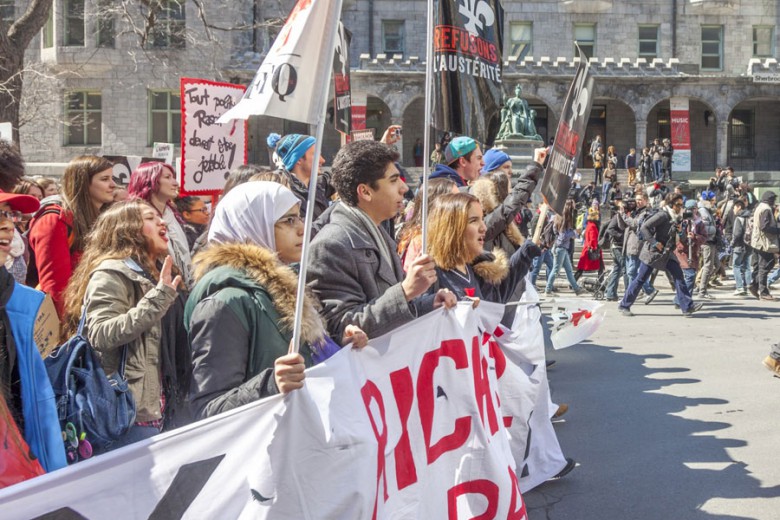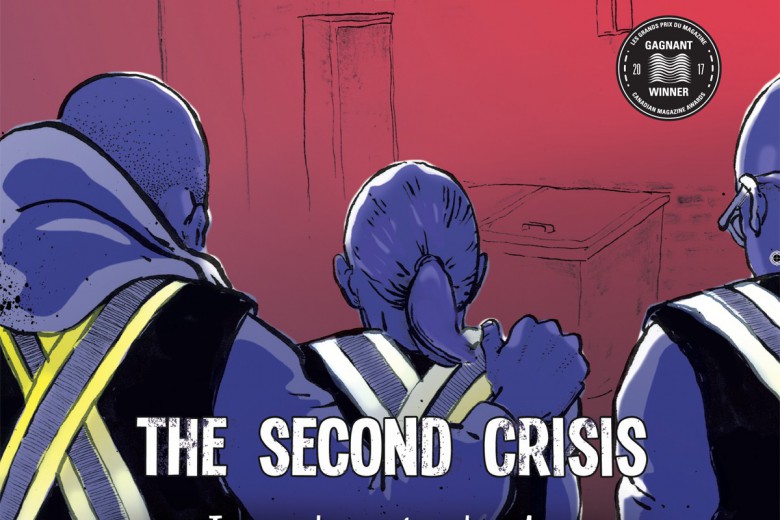There’s an early scene in Boots Riley’s new film Sorry To Bother You where the protagonist, Cassius, who works at a telemarketing company, is approached by a charming coworker by the vending machine.
Cassius has just asked for better pay at a staff meeting; the coworker, Squeeze, tells Cassius he’s “asking the right question.” During the scene, I thought Squeeze seemed a little too smooth – I worried he was going to sucker the down-on-his-luck Cassius into a bad deal or get him in trouble at the company. Instead, he invites Cassius to join his efforts to unionize the telemarketers. And just like that, Squeeze became my favourite character.
Before Sorry To Bother You, I’d never seen a strike on the big screen. Anti-capitalist art is rarely both radical and popular, either forgetting to suggest actual solutions to capitalism or forgetting to bring those solutions to a wide audience. But by taking a familiar narrative and adding a radical twist, Riley has made a film that knows how to engage – and enrage – a viewer. He offers us a real response to the horrors of late capitalism: organize.
The movie follows Cassius, a young Black man living in Oakland who badly needs to pay rent. He gets a job at telemarketing company Regal View and, once he starts putting on a “white voice” to make sales, quickly starts rising through the ranks at the company, eventually selling something much worse than encyclopedias. On the surface, this is a conventional story – a guy who’s down on his luck finally starts to see success, but at a price.
Anti-capitalist art is rarely both radical and popular, either forgetting to suggest actual solutions to capitalism or forgetting to bring those solutions to a wide audience.
But – as Briahna Gray of The Intercept points out – where a typical drama would focus on Cassius’ internal, personal struggle, STBY situates Cassius in a broader collective struggle. Once Squeeze convinces the low-level callers to stage a strike for better wages, Cassius’ choice isn’t between success and failure – it’s between participating in the system and fighting to change it.
And STBY doesn’t just tell the story of a protest – it feels like a protest. The film refuses categorization, blending realism and satire with a double shot of surrealism. The directing and editing has a frenetic energy; scenes often jump jarringly from one to the next. Every frame is packed with visual treats, some so small you’ll blink and miss them, some that hit you over the head (Cassius’ girlfriend, performance artist Detroit, wears a series of giant earrings with wonderfully menacing slogans).
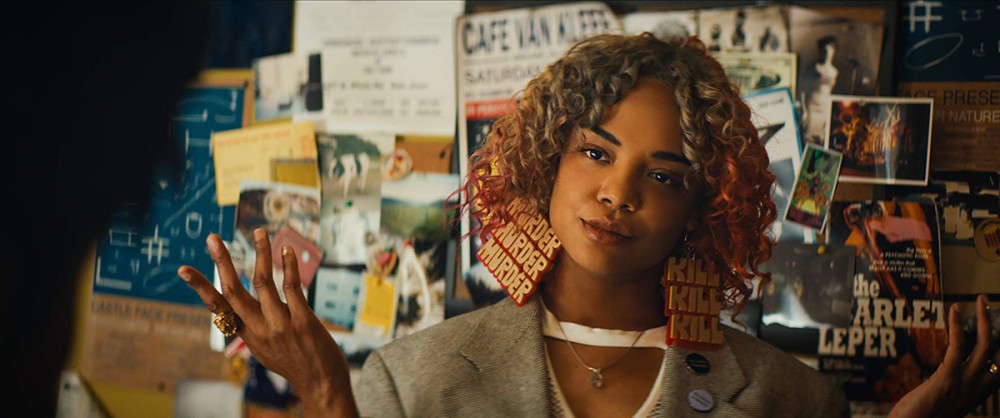
The doses of surrealism give the viewer enough distance to think critically about the ideas on-screen and make the moments of realism – like when striking workers clash with police outside Regal View – all the more hard-hitting. Though the restlessness might overwhelm, it also keeps you captivated and, hopefully, leaves you feeling agitated, or wanting to agitate.
Anti-capitalist art has long struggled to find a place on screen. Depictions of contemporary working-class life have been on the rise in film and TV, but mostly in the form of realistic examinations of life under capitalism, as opposed to stories that challenge those conditions. Satires like Comedy Central’s new show Corporate point out the depressing absurdity of alienating jobs, but they don’t suggest the possibility for any other way of life. The few works of pop culture that do try to propose a change – more fantastical films like Fight Club – usually forget that, in reality, we already have movements that are organizing against capitalism.
Cassius’ choice isn’t between success and failure – it’s between participating in the system and fighting to change it.
The art that does remember labour movements exist usually struggles to reach and connect with mainstream audiences. Theatre and visual art about labour generally fail to spark widespread discussion. Film depictions of labour movements, meanwhile, mostly consist of inaccessible avant-garde works (Jean-Luc Godard’s Tout Va Bien) and straightforward retellings of important but dated histories (John Sayles’ Matewan).
STBY, on the other hand, is anything but out-of-date. Recurring jokes include a reality show called I Got The Shit Kicked Out of Me and a viral video of the protagonist getting hit by a can of cola at a protest, a reference to Kendall Jenner’s cringeworthy Pepsi commercial. With a soundtrack by Riley’s punk hip-hop group The Coup that features Janelle Monae, and a cast of rising talent including Atlanta’s Lakeith Stanfield and Dear White People’s Tessa Thompson, the movie is plugged in and riled up. Above all, STBY wants to engage the demographics it represents: young people, working class people, Black people, and other people of colour. It doesn’t speak for its subjects, it speaks to them.
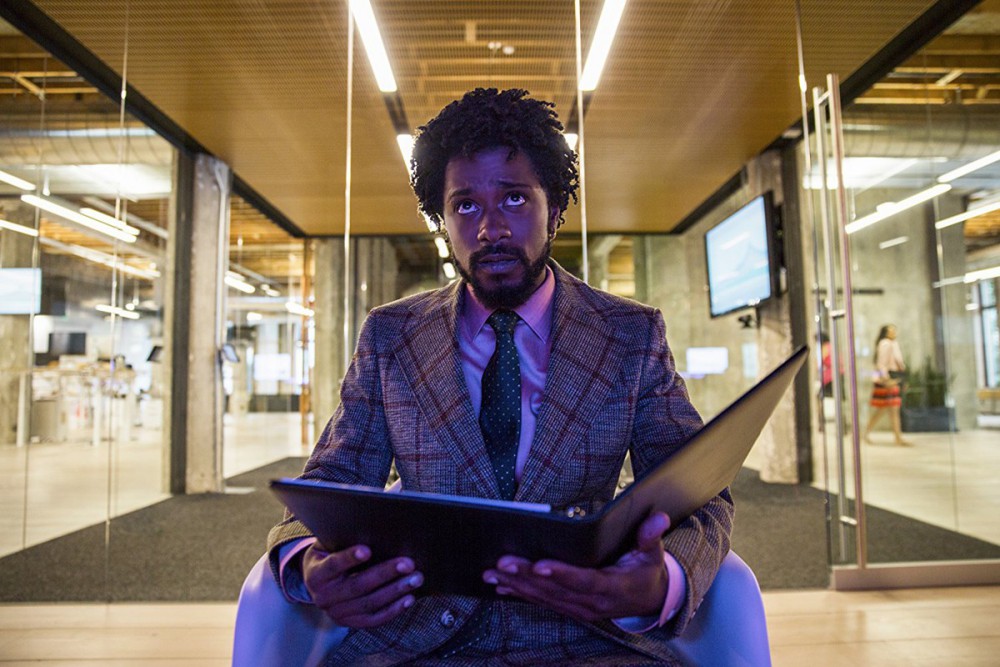
It could be argued that the surrealism of the film absolves Riley of having to deal with the real-world consequences of organizing. Indeed, (spoilers ahead!) the the movie ends with a group of half-horse-half-humans (that the film’s most evil corporation, Worry Free, has been breeding in secret to use as slave labour) fighting the cops that are brutalizing workers. I’d respond to that criticism by saying that Riley isn’t trying to give us an exact depiction of the nitty-gritty of organizing – if he was, he would’ve stuck to realism. He’s trying to present a vision of collective struggle as an alternative to capitalist conformism. In the film’s final moments, Cassius himself is transformed into a horse-person against his will – a reminder that organizing doesn’t come without sacrifice, and that the struggle doesn’t end after one win.
STBY depicts a horrifying, all-too-familiar world, but it also gestures toward ways that we can build a different one. Movies can’t create that world on our behalf, but they can help us imagine how to get there. When labour movements are erased from pop culture, the possibility of a real response to capitalism disappears from our collective imagination – Riley is reminding us that we already know how to fight back.


